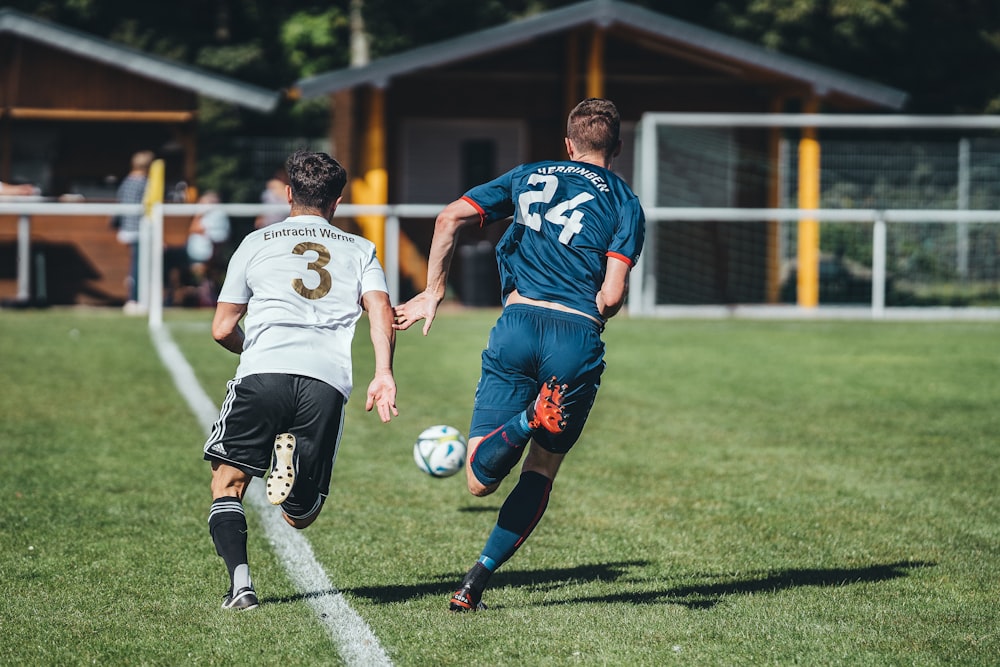Soccer decision making is a crucial aspect of the game that involves making quick and effective choices on the field. It encompasses various factors such as passing, shooting, dribbling, and positioning. Good decision making can greatly impact the outcome of a match. Decision making directly relates to playing time and players that make good decisions are highly sought after by college and professional teams.
https://unsplash.com/photos/6k0VD3xNw6U
Why is Decision Making Important in Soccer?
Decision making plays a vital role in soccer as it determines the success or failure of a team. One decision can greatly influence the course of the match. Good decision making allows players to assess the situation, anticipate the next move, and make the best choice to gain an advantage over the opponents. Effective decision making leads to better teamwork, increased scoring opportunities, and ultimately, more victories.
https://unsplash.com/photos/wdQz3RbcOgQ
Factors Affecting Decision Making in Soccer
1. Awareness: A player's ability to be aware of their surroundings and quickly analyze the game is crucial for making informed decisions. Check your surroundings before receiving a pass to know where the first touch should be. If you have space, take a touch toward goal. If an opponent is close, take a touch towards open space or play a pass backwards. On the defensive side, be sure to pick up the biggest threat at all times.
2. Game Understanding: Understanding the tactics, strategies, and rules of the game helps players make better decisions. Often, coaching decisions, formation, and team dynamics will determine what decision should be made. For example, a player who receives the ball on the wing shouldn't dribble up the line when a striker is making a run toward the corner. Think about how your team is set up and how teammates will be moving when you receive the ball. Where will your teammate be to receive a pass and where is the space to be aggressive with a dribble.
3. Game Flow and Timing: The right run at the wrong time is a bad decision. Understand what your team needs at that exact moment. If your team is leading the match with time running out, most of the time the safe play is the correct decision. Keeping the ball away from the opponent ensures victory. Only risk an aggressive pass or dribble if there is a clear goal scoring opportunity. On the other hand, if your team is losing near the end of the match, high risk plays may be the only way back into the game.
4. Technical Skills: Proficiency in passing, shooting, dribbling, and other technical skills enables players to execute their decisions effectively. Put the time into training these skills to ensure you have the ability to perform them during the match. Proper decision making involves understanding your own strengths and when to use them. It also involves understanding the strengths of your teammates. Playing a through ball for a slow defensive midfielder might not be the best decision!
5. Communication: Effective communication with teammates allows for better decision making, as players can coordinate their actions and make collective choices. Tell your teammates where you are as they receive the pass. You can also communicate how close defenders are or where you want the pass to be played. On the defensive side, communicate to teammates if you can cover for them or if they are defending on an island. Defenders with cover can be more aggressive to win the ball back.
https://unsplash.com/photos/S59TIT-FPcU
Improving Soccer Decision Making
1. Practice Decision-Making Scenarios: Simulating game situations during training sessions helps players develop their decision-making skills under pressure. If you are training with teammates, offensive advantage scenarios (4 vs 3, 5 vs 3, 2 vs 1, etc.) are ideal for training both offensive and defensive decision making. Offensive players must choose the right play quickly while defensive players must pick up the biggest threat.
2. Analyze Game Footage: Reviewing game footage allows players to identify areas for improvement in their decision-making process. Look at how the play happened and then what alternatives could have been played instead.
3. Learn from Experienced Players: Studying the decision-making abilities of experienced players can provide valuable insights and strategies. Professional matches offer easy access to decisions. Watch how players receive the ball and where the space to attack is located. Also watch how players move without the ball. What runs could be made? Where could a player move to make the pass easier?
4. Develop Game Intelligence: Enhancing game intelligence through studying tactics, game analysis, and situational awareness can significantly improve decision making. Before kickoff, look at the shape and formation of the opponent. Attackers should be aware how many defenders the opponent has and where the space is to attack. Vice versa, defenders should look at how many attackers will be trying to get by them and where the players will be running from.
https://unsplash.com/photos/cGSKtowYJwM
The Impact of Decision Making on Team Performance
Good decision making not only benefits individual players but also enhances team performance. When players make quick and accurate decisions, it leads to better ball movement, increased scoring opportunities, and improved defensive strategies. It fosters a cohesive and synchronized team dynamic, resulting in more chances for success.
https://unsplash.com/photos/eSdyH0S_fww
Conclusion
Soccer decision making is a critical skill that can make a significant difference in the outcome of a match. By improving decision-making abilities through practice, analysis, and learning from experienced players, individuals and teams can elevate their performance on the field. Effective decision making enhances teamwork, increases scoring opportunities, and ultimately leads to more victories.









